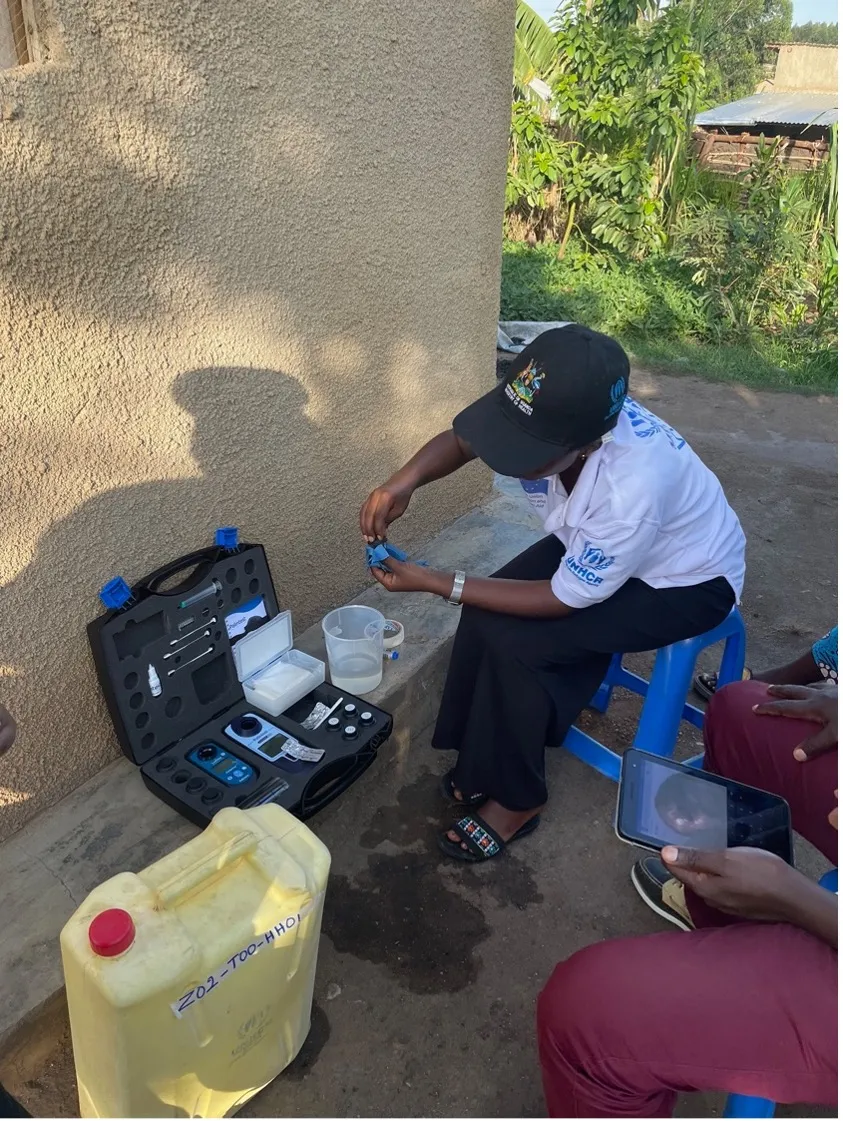Building the evidence base for the Safe Water Optimization Tool

The Safe Water Optimization Tool (SWOT) is a web-based platform that generates site-specific and evidence-based water chlorination targets, to ensure water remains safe to drink all the way to the point of consumption.
In a 2019 pilot trial at the Cox’s Bazar refugee camps in Bangladesh, the SWOT doubled the proportion of households with safe water after 12 to 18 hours compared to standard emergency chlorination guidelines. This Bangladesh based trial showed that the SWOT could play a big role in helping ensure water safety and protect public health in emergencies around the world.
The Humanitarian Innovation Fund’s WASH Evidence Challenge is now supporting us to make some important developments in the tool based on experience from field trials and feedback from users. We’re aiming to turn the SWOT prototype into a fully-fledged product, and we’ve identified three important areas of development and testing to ensure the SWOT is ready for widespread adoption in the sector:
1. The SWOT needs to work reliably across different use cases.
A lot of the work we’ve done so far with the SWOT has been in camp settings reliant on groundwater, boreholes, and piped water systems. While this is a pretty common situation in refugee and IDP camps around the world, there are other water supply use cases that the SWOT can help with as well. We’re setting out now to evaluate the SWOT in camps reliant on surface water, in medical facility water systems, and in settlements relying on water trucking.
2. We need to move the SWOT from prototype to product.
The SWOT needs to be easy to use, robust enough to handle unpredictable situations, and able to deliver the right information in an accessible format. Based on learning from new and existing field users, we’re working now on enhancing the tool’s analytical capabilities, functionalities, and user experience and interface.
3. The SWOT needs to address concerns relating to taste and odour acceptance and disinfection by-products—two crucial yet under-researched aspects of drinking water chlorination in emergencies.
Chlorine can have a strong chemical smell that people are often unfamiliar with and can find objectionable. Field workers have observed that people sometimes turn to untreated, often faecal contaminated, alternative water sources if the chlorine level in treated water is too high—creating a new kind of public health risk. This is why it’s important to get the balance right: ensuring enough chlorine protection to keep the water safe to drink, but not so much that users will reject the water because of its taste and odour (T&O). This is something we’ve heard a lot from water system operators and field users of the SWOT, but there are currently no tools available to rapidly assess chlorine T&O acceptability thresholds in humanitarian field settings. Therefore, another big part of this project will be developing and piloting such tools at our field sites.
Field workers have also raised concerns about disinfection by-products (DBPs), chemicals that can be produced when chlorine reacts with the organic matter naturally present in water. Some DBPs may have health impacts, but they are currently not well understood, so we want to create a rapid DBP characterization tool and generate some much-needed evidence around DBPs in emergency water systems. These rapid T&O and DBP tools will become part of the enhanced SWOT toolkit.
To develop the full potential of the SWOT, we’re partnering with Tufts University, Oxfam, and Médecins Sans Frontières to conduct mixed-methods evaluations of the SWOT, in parallel with developments to the web tool led by our in-house team of machine-learning, modelling, and web development experts. Participation in the WASH Evidence Challenge will go a long way in helping us develop the SWOT toolkit into a comprehensive, evidence-based ‘one-stop shop’ for safe water supply in humanitarian operations.

Stay updated
Sign up for our newsletter to receive regular updates on resources, news, and insights like this. Don’t miss out on important information that can help you stay informed and engaged.
Explore Elrha
Learn more about our mission, the organisations we support, and the resources we provide to drive research and innovation in humanitarian response.


.png)